首頁 » News » Media Releases » Key to Successful University Service-Learning: A Good Master
Key to Successful University Service-Learning: A Good Master
(CNA News by Reporter Hsu Chih-Wei in Taipei on 31st Day) A lot of domestic universities are dedicated to promoting Service-Learning. Director Li Chun-Yao of CYCU Service-Learning Center believes that the key to successful Service-Learning should reside in the teacher’s “mentoring skills”, as the teacher needs to persuade students to participate in the service voluntarily and also to instruct them.
In order to enable students to learn and grow in the process of Service-Learning, Ministry of Education promoted the college/university Service-Learning programs and encouraged various schools to set up the unit dedicated to promoting Service-Learning and planning Service-Learning courses. However, a few students reflected that their services only included environmental cleaning, messenger, and attendance to speech; in other words, they were working under the disguise of service provider or were ordered to accomplish some mission.
Director Chang Wen-Hao of NCTU Service-Learning Center told the CNA reporter that when schools engaged in promoting the Service-Learning at the very beginning, they would assign the students to their cooperation entities; however, the students could not necessarily meet the entities’ needs with their profession. Therefore, the Service-Learning didn’t produce any positive effect; in order to make the Service-Learning sense more, we need to combine the profession taught by the university’s departments/colleges to develop characteristic Service-Learning.
Chang Wen-Hao revealed that for example, NCTU Department of Electrophysics had worked with some elementary school a few years ago. The university students helped design the induction/electric motor courses and led the elementary school students to do scientific experiment, and parents recognized the courses positively; e.g. Students of Department of Civil Engineering, who are good at measuring, should work with network companies to help set up map information. Students of Department of Mechanical Engineering once helped schools repair waste bicycles by integrating their profession into the service.
According to Chang Wen-Hao, the most important thing for Service-Learning is to combine the profession and social needs, and teachers’ dedication is also the key to success. If teachers don’t care anything after assigning the students to social welfare organizations only, the students are very likely to do the service in order to satisfy the service hours as required. Therefore, if teachers may provide instruction on improvement and adjustment, it is believed that the students would achieve some positive results definitely.
“University students cannot be locked in the ivory tower”, believed by Chang Wen-Hou. He said that Service-Learning is a required course, and it will not be enough for students to only learn professional courses after entering the universities, as they will not understand the society enough; therefore, they must walk into the society to verify the society’s needs and bond with the local society. Even if Service-Learning is adjusted and no longer a required course, the universities should still offer similar courses or activities.
Director Li Chun-Yao of CYCU Learning Service Center mentioned that he didn’t quite understand what Service-Learning was at the very beginning, but only found that students were not interested in theories; therefore, he led the students to visit orphanages and taught them to practice their knowledge to help save electricity bill, and the students achieved the sense of accomplishment and also proved the knowledge they learned from classes. After promotion by the School, the other departments also started to offer the courses combining profession and service.
As to whether the Service-Learning should be identified as a required course, Li Chun-Yao said that to be honest, they have discussed about this issue for a long time; as the sense of mission is required by Service-Learning, if the Service-Learning is identified as a required course, it will lose the sacred sense of mission and uniqueness. Besides, those who have no willingness to engage in the service might complain all the days and, therefore, the quality of service would be affected adversely; finally, the School decided not to identify it as a required course.
Lee Chun-Yao said that in order to persuade students to engage in Service-Learning voluntarily, teachers should possess good mentoring skills at first and then students would be willing to follow them; the Service-Learning is provided with justified causes, but teachers have to persuade students to take part in it at first and the teachers’ mentoring skills are also very important; e.g. if the teachers assign students to some social welfare entity without training them at first, the students might feel hurt as it might not be what they expect initially.
Lee Chun-Yao indicated that teachers and students should be both dedicated to the Service-Learning, and teachers should give instructions timely to enable students to understand what the service they provide mean; because students are all very sensitive, they will know if teachers only make use of them; in other words, without these alternative measures, the Service-Learning would be nothing but a “KPI competition”; only if learning prevails service, the service learning will be successful.

